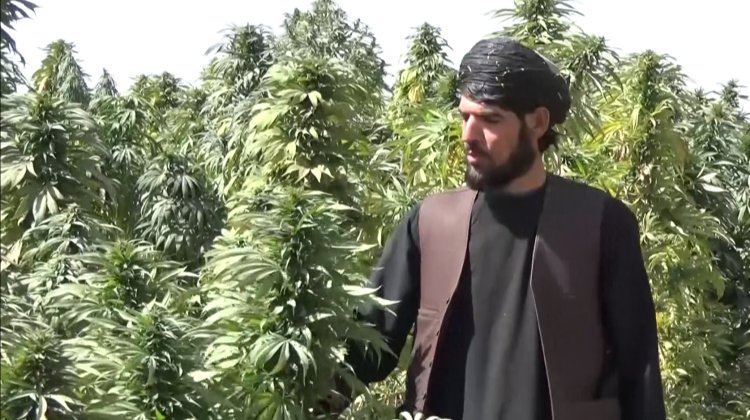Bumper cannabis crop for Afghan farmers
Afghanistan's new Taliban authorities swear they plan to crack down on the illicit drugs trade that largely fuelled their successful revolt.

Afghanistan's new Taliban authorities swear they plan to crack down on the illicit drugs trade that largely fuelled their successful revolt.
But so far nothing has changed for cannabis farmers like Ghulam Ali, whose crop stands head-height across three hectares (eight acres) of land outside Kandahar.
The plantation lies on the main road through the Panjwai district, northeast of the city, its dark green plants as recognisable as the acrid smell.
"We benefit from it more than from any other crop or fruit," Ali told.
"I had the option to grow other things, but poppy needs more investment, more chemicals to protect the plant from disease."
Under the previous US-backed government, overthrown by the Taliban in August, the hashish farmer paid local officials a levy of 3,000 Pakistani rupees ($17) a kilo.
"It was nothing official, just a tax we had to pay. If not they could destroy our plantation," Ali said.
Ali's family converted maize fields to cannabis in 2000, just before the end of the previous Taliban regime, and have had no cause to regret it.
Some 20 relatives live in his mud-brick farmstead. They're not wealthy, but the children go to school and life is comfortable by rural Afghan standards.
At busy times, they hire outside workers to help bring in the harvest.
Next month, the plants will be sifted, pressed and heated to extract an oil, which is then transformed into black-green hashish paste for sale and export.
The bricks sell to traffickers for between 10,000 and 12,000 rupees per kilo ($60).















